


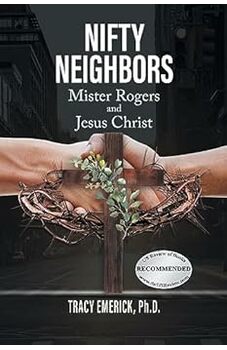


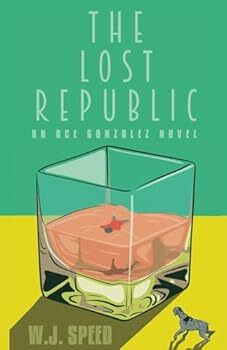
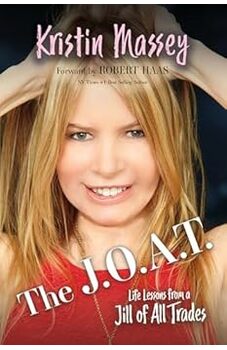
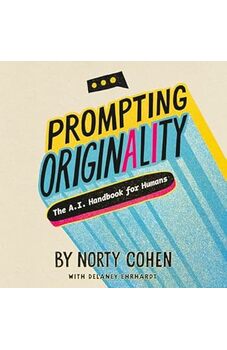
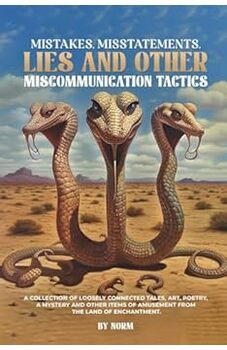

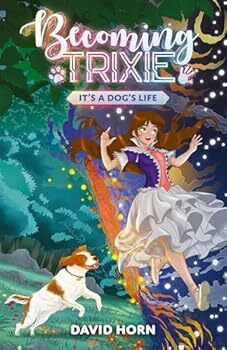

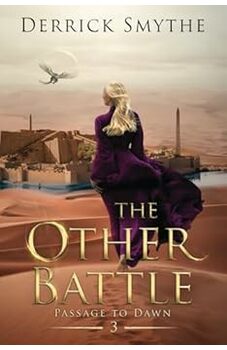
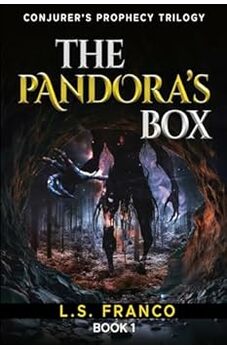
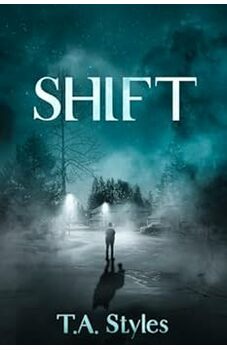
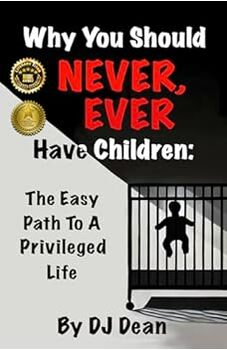
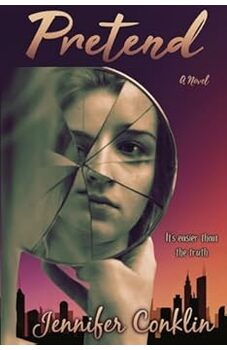
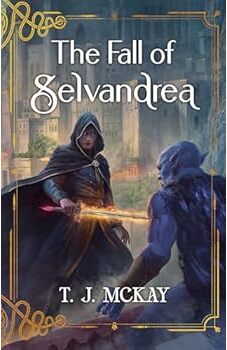

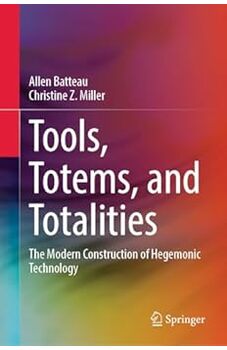

 This author participates in the Readers' Favorite Free Book Program, which is open to all readers and is completely free. The author will provide you with a free copy of their book in exchange for an honest review. You and the author will discuss what sites you will post your review to and what kind of copy of the book you would like to receive (eBook, PDF, Word, paperback, etc.). To begin, click the purple email icon to send this author a private email.
This author participates in the Readers' Favorite Free Book Program, which is open to all readers and is completely free. The author will provide you with a free copy of their book in exchange for an honest review. You and the author will discuss what sites you will post your review to and what kind of copy of the book you would like to receive (eBook, PDF, Word, paperback, etc.). To begin, click the purple email icon to send this author a private email.
Reviewed by Anne Boling for Readers' Favorite
Well, as a lover of Chinese food, this was an interesting read. Throughout the United States, there are more Chinese Restaurants then there are McDonalds, Burger Kings, and KFC’s combined.
Jennifer 8 Lee is an American-Born Chinese who many evenings her mother would send her down the street to the Chinese Restaurant to get supper for them, if she had a busy day at work. Then there is always the fortune cookie at the end.
Later on, as she read about the 110 people across the United States who all won the lottery by what else, using numbers found in their fortune cookies, which I used to throw away. Jennifer started looking into the mystery and from there into the world of Chinese food and restaurants.
Are Fortune Cookies really from China? Is Chop Suey strictly an American dish?
To me, this was like reading a documentary, which I really enjoy.
Follow along as she travels the country side and visits Chinese Restaurants from Wyoming, to California, to Louisiana. Travel with her as she finds the legends of what most of all love to eat…… Chinese food.
I was intrigued by this book when I read a glowing review of it on Yahoo news, and was able to finish it over several hours sitting in the local bookstore. Much like a fine Chinese meal, the Fortune Cookie Chronicles is fairly light, quite tasty, and in the end both filling and fulfilling. Because the book is so well written, it's a lot of fun and you'll learn more than you could have ever imagined about Chinese food in the United States (as well as elsewhere), something many of us -- myself included -- have long taken for granted.
The book traces the incredible history of Chinese food in the United States, with the author setting out to explore why it is so popular across the country. Along the way she is able to spin delicious yarns on such topics as the birth of General Tso's chicken (including a hilarious trip to the General's home town in rural China where absolutely no one has ever heard of the dish), the Japanese origins of the fortune cookie, the reasons for the Jewish love of Chinese cuisine, how human smuggling supplies the many thousands of Chinese workers who run Chinese restaurants across the country, and other areas.
One of the most fascinating things I learned from the book is that the Chinese food we all know and love barely resembles real Chinese food -- the type of food people eat in China. In traveling to China to sample and research food and culture across the large nation, the author herself was initially surprised by this, and as the book progresses the fact helps demonstrate how the development of Chinese(/American) food is symbolic of the broader change to the culture of Chinese people who have moved to and settled their families in America.
Indeed, more than being about the strange growth and metamorphosis of Chinese dishes in the U.S., this book is about how America has impacted Chinese-American culture and vice versa. The fact that Chinese dishes have been altered in order to fit the tastes of Americans reflects how many Chinese-American citizens, the author included, have culturally changed from their own parents and grandparents. While many Chinese-American dishes beloved here are totally unknown abroad -- and often even disliked by Chinese people in the Far East; such as General Tso's chicken -- their popularity has spawned the worldwide creation of a unique amalgam of cuisine that is both Chinese and American and not solely representative of either group alone (the brief section on P.F. Chang's as a form of upscale American-Chinese food is fascinating and exactly on point of this phenomenon). Furthermore, as the book shows, the popularity of Chinese food in the U.S. spreads across all of the states, cultures, ethnicities, and religions. The author does a fantastic job of dissecting the sheer love of Chinese food in all 50 states, and the history behind that astonishing popularity.
Upon finishing I was somewhat amazed that someone could have spent so much time and effort researching Chinese food, but it is clear that the author -- Jennifer 8. Lee of the New York Times -- has a passion for the subject, as well as an interest in exploring her own identity as a Chinese-American. Admittedly, while I read the Times every single day and have long noticed Ms. Lee's byline, all I could remember about her work was her cool middle name (perhaps the neatest middle initial and name since Harry S Truman). I will look out for her more now, as she is a superb writer and able to speak with a witty and lively prose. I am sure her future books will be equally as compelling.
If I can make a small complaint about the book, it probably goes on for a bit too long, ending at just under 300 pages. While this does not seem like much, I think the author could have cut a lot of the material that was included in the later chapters. Nevertheless, this is still a fun book to read, and a good gift.
Four stars.
This is one of those delightful books that tells you all sorts of "behind the scenes" secrets about a part of life that everyone knows about and takes for granted. But unlike a lot of tell-alls (think Fast Food Nation) that make you afraid of a product or industry, The Fortune Cookie Chronicles left me more in love with "Chinese food" than ever before.
Lee is a skilled journalist, and so the exposition of her insightful ideas is typically clear and crisp, yet never dry or academic. The pages come alive with clever witticisms (she compares General Tso to Colonel Sanders) and she evokes real people with real stories, like the entrepreneuse who introduced Chinese food delivery to New York, and the delivery man trapped in an elevator for days who couldn't speak enough English to get help via the intercom.
But the real fun of this book is learning about how what we think of as Chinese food isn't the food eaten in China; the cuisine served as "Chinese food" around the world is as much a mix of its Asian origins and its adopted home as the children of the hard-working immigrants who serve it up. Fortune cookies turn out to be as American as apple pie -- or probably more so, if you buy her argument: when was the last time you had apple pie, and when was the last time you had Chinese food?
The Fortune Cookie Chronicles isn't just about Chinese food. It shows us, through the stories of a ubiquitous cuisine and its subculture, the kinds of forces that make America what it is today, and continue to shape our world.
Full disclosure: although I do know the author, this review was unsolicited. I'm writing this for those who haven't had a friend already introduce this wonderful book to them!
I do have to admit that I am in the book as inventing the Fortune Album, but I also do have to admit that I found this to be a fascinating and revealing book about a myriad of topics relating to Chinese cuisine, the fortune cookie, and about Chinese culture in general.
My favorite Chapters in the book are as follows:
Chapter 8: The Golden Venture: Restaurant Workers to Go - in which Jennifer describes the process of immigrating to the United States for the sole purpose of working in the Chinese restaurant industry.
Chapter 12: The Soy Sauce Trade Dispute - How the largest manufacturer of packeted soy sauce does not use soybeans in their product!
Chapter 16: Tsujiura Senbei - The real nation that invented the fortune cookie and how the Chinese "stole" it and marketed it to what it is today.
But to be honest, I found the whole book to be a true labor of love, from describing how the concept of delivery of Chinese food came about, how the Chinese came to own so many restaurants and laundromats, the Chop Suey revolution, the state of the Fortune Cookie industry, why Jewish people love Chinese food, the discovery of the Greatest Chinese Restaurant in the World, and the contrast between Chinese parents and American parents.
So go buy the book. It takes about 4 nights before going to bed to finish it, and you will find it very educational and fun.
Congratulations, Jennifer, for spending a monumental amount of time, energy, and effort in writing such an excellent book.
Fortune Cookie Chronicles is just terrific. I read it in two sittings (I did get up to use the toilet, so I don't know if that is really two sittings or not).
Jennifer 8. Lee tracked down so much cool information. My wife is Japanese and we lived in Japan for 7 years and Hong Kong for two. We've lived in the Boston area for more than ten years and eat Chinese a few times a month. I thought I knew about Chinese food. Ha! I didn't know squat.
What's so great about the book is that it is an entertaining and well written romp into a world we are all familiar with, but until now nobody really knew that well.
In The Fortune Cookies Chronicles (2008), Jennifer 8. Lee explores how dishes like these and Chinese food in general has "ceased to be ethnic" (19) and yet arguably and identifiably Chinese at the same. As one American military officer in Iraq noted, "What could be more American than beer and take-out Chinese?" (26). In order to understand how Chinese food can be both Chinese and American at the same time, Lee takes the readers throughout the United States and China to find the origins of some of our most popular dishes, and she travels around the world to find the "greatest" Chinese restaurant in the world.
Rather than a standard history of the little cuisine that could, Lee explores how Chinese food pushes the boundaries of how we define concepts like assimilation and authenticity (256-257). Lee posits that the old definitions of assimilation which emphasize minority populations blending into majority populations, the success of Chinese food demonstrates that convergence is the key to assimilation. And what actually constitutes authenticity? Potatoes are a staple in Irish food, but they are undeniably a New World food. Indian curries are enhanced by New World chilies. Lee considers all of these examples (including Chinese dishes like General Tso's chicken) to be "native foreign dishes" (257). Foreign in their inspiration, native in their creation. There are reasons why foods lend themselves so easily to blending of cuisines and ingredients. Lee points out that when people first come into contact with each other, language may be a barrier, but food lends itself immediately to opinion and evaluation (258). Food practices also tend to be one of the aspects of heritage that survives culture contact. Lee suggests that her grandchildren someday may not speak Chinese, but they will know how fry dumplings (258). Rather than the melting pot analogy that all school children are taught, stir-fry may be more apt; "our ingredients remain distinct, but our flavors blend together in a sauce shared by all" (259).
I found Lee's writing to be accessible and entertaining while at the same time theoretically interesting. While much of the book explores particular dishes, controversies, and the migration of Chinese restaurant workers, Lee keeps all of these topics grounded in her efforts to understand how food can be authentic and foreign at the same time. Lee does not hit the reader over the head with anthropological and sociological theory, but the concepts are there, grounded in the lived experiences of the people that Lee interviews and describes.
Jennifer Lee has written an engaging book on the phenomenon of Chinese food in America. It is filled with factoids that most likely you did not know before, such as the fact that there about twice as many Chinese restaurants in America as there are McDonalds.
She delves into such arcana as the origin of General Tso's chicken, the history and anatomy of fortune cookies, the making of those trapezoidal carry-out food boxes, why Jewish people especially love Chinese food and a stroll through the best Chinese restaurants in the world.
It would be tempting and a cliché to say that, thirty minutes after reading it, you're hungry for more. Alas, that line has apparently been taken by a prior reviewer.
If you enjoy Chinese food, you will enjoy "The Fortune Cookie Chronicles."
Confucius say, "You have a fun reading ahead of you..."
Anyone who knows me that I love American Chinese food. I could eat it every meal every day for the rest of my life and be happy. Not the fish heads, and chicken feet, but give me General Tso's Chicken, Singapore Noodles, kung pao shrimp, etc., and I'm in heaven.
The author is an American Born child of Chinese immigrants, and she loves Chinese food too. She tells the history of Chinese restaurants in America (starting with the horrible glop Chop Suey), travels to China to find General Tso's descendants (who of course know nothing of his chicken), discovers that the fortune cookie was probably invented by the Japanese, has an entire chapter on why "Chinese is the Chosen Food of the Chosen People," examines the immigrant plight of the people who work in the back kitchen in your typical Chinese take out, and tries to find the best Chinese restaurant in the world (outside of China).
If you like Westernized Chinese food, like I do, it's a great and funny read.
And after finishing the book, I know what I'm having for dinner tonight, the General is calling my name!
The opening chapters of this book by Jenneifer 8. Lee have a merry verve. Who invented chop suey, a dish unknown in China? Who was this General Tso, anyway? (A Chinese Colonel Sanders, perhaps?) Can it be true that Japanese invented the fortune cookie? (Gasp!) But there's more to this book than Kung Pao chicken, chopsticks, and zodiac calendars.
Chapters on Chinese immigration and the movement of immigrants around the nation to work in restaurants are told in a lively reportorial style that still provokes thought. They give stale discussions of immigration policy a human face, and her visits to China bring alive such abstractions as "push" and "pull" factors.
Sprightly chapters on the business side of restaurants and supplies -- and "The Soy Sauce Trade Dispute" -- deliver a lot of commonsense economics in a most agreeable way. The economic side of the book culminates in a theory of "open source" economic adaptation that is, to this reader, quite fresh.
Finally, the book has a lot to say about America, our history, and our culture. Lee even proposes a new metaphor to replace the old "melting pot" and the newer "salad bowl." Our nation is "stir-fry," she writes. We'll see whether the new label gets a larger market share among academics and pundits.
Finally, an advisory: Reading this book is like watching the Ang Lee film, "Eat, Drink, Man, Woman." As soon as you put it down, you'll have a strong urge to drive to the nearest Golden Dragon, Peking Gourmet, or Hunan Garden and order too much.
-30-
I read - a lot. I lend books I like to co-workers, (I've found that that's the best way to have them recommend books to me - new discoveries!)
So far I and three of my co-workers all loved this book. So that's how I got to twenty stars!
If you're trying to decide if you'll like this book, here's how to decide:
Are you insatiably curious? Do you read the cereal box and the milk carton at breakfast? Do you love a well written book? Do you like a book that you can put down after fifteen pages and pick back up two days later and not miss a thing? will you read a book about anything if it will keep you entertained? If you said yes to most of those, you'll like this book.
I have been eating chinese food and fortune cookies all my life. It is amazing how much I didn't know about the subjects. Until now! The Fortune Cookie Chronicles is loaded with odd and interesting tidbits including the origination of fortune cookies, Chop Suey and the relationship between fortune cookies and state lotteries. To sum it up, this is a fun and educational book. Buy it, you won't be disappointed.

